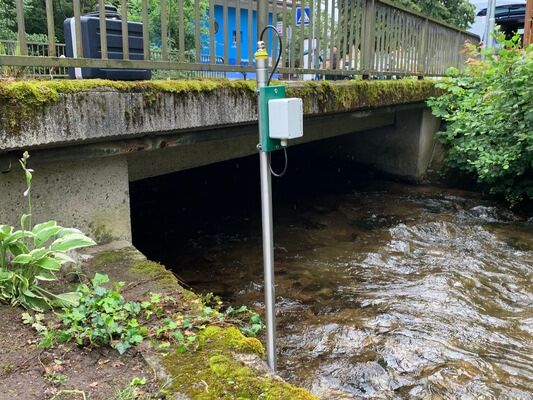Südbaden proves Smart City benefits
- August 28, 2023
- William Payne

Five cities in Germany’s South Baden district have taken part in a two year trial of smart city technologies as part of Smart Region Südbaden. The trial, led by badenovaNETZE and Thüga, sought answers to four main questions: how can innovative smart cities be technically implemented; what is their profitability; what are concrete benefits for residents; and how sustainable are the solutions.
Smart Region Südbaden was created via the Thüga innovation platform to test smart city applications at different locations and conditions in practice for 18 months from spring 2020. It is part of the “Climate Active Community” overarching project.
The five cities, Breisach am Rhein, Freiburg, Gundelfingen, Kirchzarten and Lahr, field tested a range of solutions and technologies. These included: remote reading of water and heat meters, occupancy detection of mobile home parking spaces and parking spaces for the disabled, soil moisture measurement, flood monitoring and the fill level sensors for used glass containers.
Headline conclusions of the five cities included smart city technologies requiring less cost and time than predicted, and greater improvements in safety and sustainability than anticipated.
The cities found that remote reading of water and heat meters via IoT sensors offers a high economic added value for energy suppliers. Avoiding home visits saves personnel costs, and production processes can be optimised as a result, for example by lowering the flow temperature or reducing peak loads. Residents benefit from more convenient reading without an appointment and a lower susceptibility to errors. In addition, the short-cycle data transmission means that water networks can be better monitored and leaks can be detected quickly.
In the trial, IoT sensors in connection with LoRaWAN technology have proven themselves for monitoring the levels of groundwater, flowing water and rainwater retention basins. In Kirchzarten, the building yard and the voluntary fire brigade used to check water levels after rainfall. Digital level measuring systems now transmit the values automatically and regularly to a receiver. Kirchzarten’s Mayor Andreas Hall said “Especially when water levels change quickly, digital measurement is of great benefit. The relevant departments can be informed at an early stage via the integrated alarm function”. Municipalities can thus react more quickly and are ultimately more resilient to the consequences of climate change with more frequent and more severe floods.”
Ultrasonic sensors for level measurement in used glass containers have proved themselves for greater sustainability. The tours of the collection vehicles can be optimised on the basis of the data transmitted three times a day – up to 25 percent of the journeys can be saved, thus reducing costs and CO2 emissions. Conversely, overfilled waste bins in the cityscape can be avoided. From an economic point of view, however, such municipal use cases only make sense for energy suppliers if the municipality or a municipal company co-finances the implementation of the technology.
“In the living laboratories, together with partner companies, we have developed offers with which energy suppliers can support their municipalities in the digitisation process. Partners from the Thüga Group can access all findings and use them for their purposes,” explains Dr. Matthias Cord, Deputy Chairman of the Board of Thüga AG. “The need is great because the municipalities have to take action very quickly in order to achieve the climate protection goals. Smart city concepts make cities more efficient, more climate-friendly and thus increase the quality of life of local citizens.”





